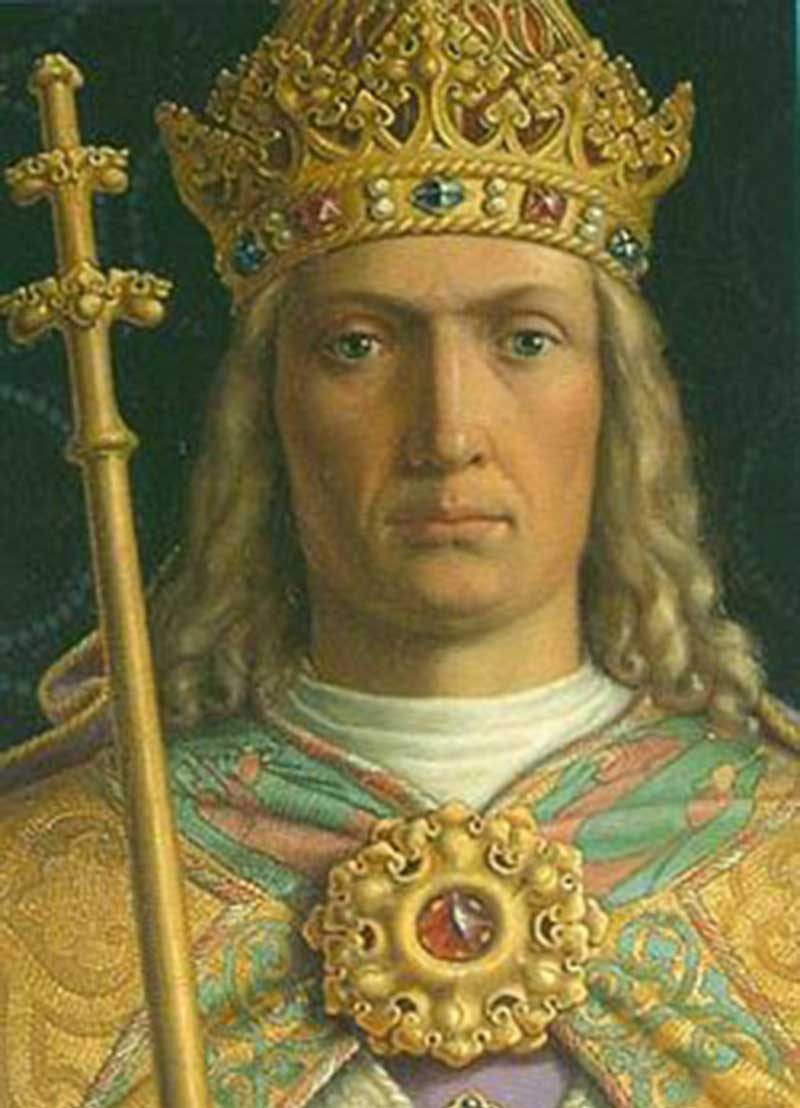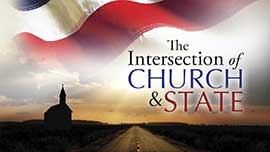IMPERIAL ELECTORS REFUSED TO CEDE THEIR DECISIONS TO THE POPE

[Above: Ludwig IV (Louis IV de Bavière empereur germanique; Archives iconographiques du Palais du Roure d'Avignon)—unknown artist, early 19th-century / public domain, Wikimedia]
BY THE THIRTEENTH CENTURY, popes claimed the authority to appoint or depose the Holy Roman Emperor. Ludwig IV of Bavaria and Frederick III of Austria both were elected kings by rival factions in 1314. Ludwig defeated Frederick in 1322. Betrayed by the pope, Frederick eventually became Ludwig’s loyal vassal king. The electors of the Holy Roman Empire chose Ludwig to be emperor in 1328 although Ludwig was by then under excommunication by the pope.
Pope John XXII, ruling from Avignon, had appointed Robert of Naples to rule Italy in the absence of an emperor. He threatened Italy’s Ghibellines with charges of heresy and Robert besieged Milan. When Ludwig’s agents in Italy helped raise the siege against Milan, Pope John excommunicated Ludwig as a heretic (1324).
Ludwig immediately responded with countercharges of heresy against the pope. In this he was assisted by some of the ablest minds of Christendom: Marsilius of Padua, John of Jaduan, and William of Ockham. Ockham set forth a theory of the papacy that made it subject to church councils. When Ludwig entered Rome in 1327, he allowed the Romans to elect their own bishop (Pietro Rainalducci, antipope Nicholas V) and accepted the iron crown and kingship of Rome. However, he did not have sufficient power to hold Italy and retreated back to Germany, where, as we have seen, he was made emperor. Repudiated by the fickle Romans, Nicholas V, a weak man, hurried to submit to Pope John.
Excommunication created difficulties for Ludwig, making it easier for rivals to raise rebellions against him. Nonetheless, he managed to hang onto power for twenty-three turbulent years. Pope John XXII continued to war against Ludwig of Bavaria through proxies. Still claiming authority to approve or disapprove whomever the electors chose as Holy Roman Emperor, he ordered Ludwig to resign.
The Germans, however, had other ideas. Jealous of their long-standing right to choose their own king (and the Holy Roman Emperor), they asserted their authority on several occasions. On this day, 16 July 1338, German princes and the electors of the Holy Roman Empire, meeting at Rense, declared that an emperor’s authority comes directly from God, is awarded by the electors’ votes, and doesn’t need papal approval.
Because of internal divisions within the empire, the council stopped short of wholehearted endorsement of Ludwig. Eventually his support eroded to the point that Charles of Moravia won election as King Charles IV of Germany in 1346 and Holy Roman Emperor. Ludwig died of a heart attack the following year, during the uneasy period when the two imperial contenders prepared to face each other on the battlefield. The excommunication against him had never been lifted.
—Dan Graves
----- ----- -----
Church and state have often been at odds. To learn what that can mean today, watch The Intersection of Church and State at RedeemTV
The Intersection of Church and State can be purchased at Vision Video







